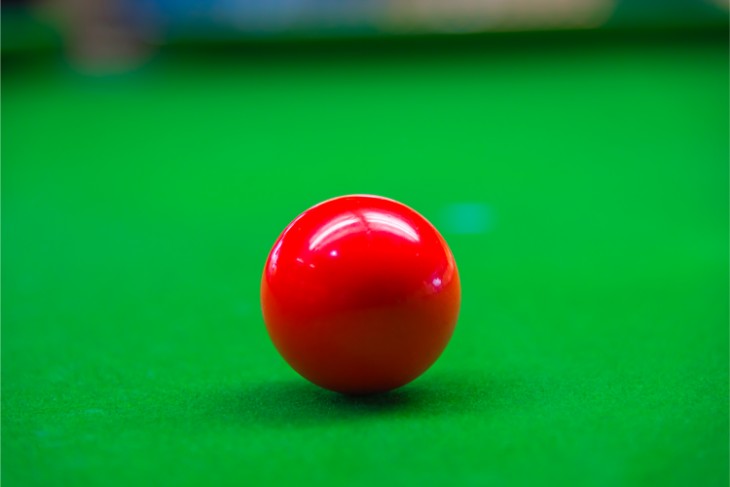Over the last few decades snooker has gone through several monumental changes. Once a sport dedicated to those who lived in the snooker halls, snooker has embraced the winds of professional change and is trying to adapt a centuries old game for new, younger audiences.
It could be argued that the game has never been more popular. Over in China there is a new breed of young and exciting players emerging all the time and the game is rapidly becoming one of the country’s most popular sports. The new look professional calendar has taken the game to all parts of the world (and although some would like more money), the very best players in the world are earning more money than ever before.
Still, despite those positives, there are challenges that snooker faces that loom large and in order to stay relevant and keep the sport in the public eye, these will need to be addressed sooner rather than later.
With so many different talking points, below are three immediate issues that we believe need to be quickly tackled.
Fixing the World Championship
The Snooker World Championship will always remain the most prestigious prize in the sport. Although it may not carry the most prize money in the game, any player that wants to leave a legacy on the sport will be judged by the number of World Championships that they win. All of the game’s greatest players have been able to claim the biggest trophy in the sport, but its immediate future does look to be in some jeopardy.
The Crucible Theatre in Sheffield has been the home of the World Championship since 1977 and many in the game believe that the Crucible holds a truly special place in the game.
Famed for its intimate atmosphere, the Crucible to snooker is what Wimbledon is to tennis or Augusta is for golf. There are many within the game that believe the Crucible should be untouched and remain the venue for the sport’s grandest prize for years to come, however not everyone feels that way.
With the contract to host the tournament set to come to an end in 2027, for the first time in the venue’s long illustrious history of hosting the tournament, World Snooker are having serious thoughts of moving the tournament to a new and different venue.
The main reason behind the potential move is capacity. Although the Crucible can create a special environment, only 980 fans can attend any one session and considering the magnitude of the event, World Snooker officials believe that for the World Championships, particularly the latter stages, they could sell three to four times as many tickets. There is an growing appetite for the game in China and it has long been mooted that taking tournament there could propel it to new heights, but that is a decision not everyone supports.
The World Championship is the sports showpiece. It is the time when snooker takes centre stage and crudely it is also the time where the sport can make its most money. At the moment there are major fears over whether the Crucible aids in that money making mission.
Whilst the purists would hope that the Crucible remains the home of snooker’s greatest tournament for years to come, don’t be surprised if by 2028, the tournament has a brand new home.

Can snooker’s new stars replace its legendary old guard?
One of the joys of snooker is that players can play the game comfortably into their middle ages. Three of the game stalwarts, Ronnie O’Sullivan, Mark Williams and John Higgins are all approaching 50 but are still some of the game’s best players.
It could be argued that it is off the backs of these three titans that the game has risen to the levels that it has, and unlike most sports, due to the longevity of a snooker career, fans and the media can get to know the sport’s biggest stars in a way that few other sports allow.
The three still rank as some of the game’s most popular players, but the jewel in snooker’s crown is O’Sullivan.
Ronnie O’Sullivan is one of those rare sportsmen who has the ability to transcend the sport and bring new audiences and demographics to the game. Tiger Woods and Roger Federer helped to do the same for golf and tennis and when O’Sullivan is in town you can be assured that the sponsors and big crowds won’t be too far behind.
A true wizard on the table, O’Sullivan’s natural flair and artistry have made him the game’s greatest ever player. A maverick in every sense of the word, O’Sullivan can excite any crowd and if he is in a final or business end of a tournament it is usually great news for the sport.
However, O’Sullivan’s time at the top of the sport is waning. By his own admission the Englishman has a love/hate relationship with the game and his motivation to travel the world and gain the ranking points needed to stay at the top of the rankings just isn’t there in comparison to his younger rivals.
A true character, there is something about O’Sullivan’s mystique and character that the other players on Tour simply can’t rival.
Modern players are criticised for being too robotic, robotic in how they engage with the crowd and robotic in how they play the game, the swashbuckling style of O’Sullivan is a throwback to the times of old and slowly it is being replaced for a new breed of sensibilities.
Despite firmly being at the twilight of his career, it is still O’Sullivan who the crowds and sponsors want to see, however, the game needs to think about a future where he isn’t part of it.
A game without O’Sullivan presents an uncertain future and without him he will leave a huge hole for someone to fill.
Snooker’s new breed of players haven’t been able to make much of an impact with the more casual snooker fan. In order for the game to continue to thrive, someone will need to step up and be willing to be the game’s new poster boy.

The battle to attract new, younger audiences goes on
Snooker isn’t alone and in order to stay relevant it needs to adapt its approach to appeal to younger, more tech savvy audiences.
Other sports such as tennis, golf and Formula 1 have all found themselves in a similar position and have tried to modernise their offering by creating new documentaries that give an inside look behind the scenes at the sports biggest tournaments and their biggest stars. Whilst snooker can’t do the same, there have been several attempts at trying to fast track the game.
Events like the World Championships can see matches last days and although traditional fans feel that it helps make snooker unique, long formats can sometimes have an adverse effect and put new people to the sport off watching.
There have been attempts in the past to introduce new formats to the sport. One frame shootouts are a good idea but it’s fair to say that it is a format that hasn’t really caught on. The introduction of the golden ball at snooker’s newest Saudi Arabian event is another good idea but the jury is still firmly out if this latest addition will help make the game more exciting.
Like most issues in this list, a balancing act will need to be found. Snooker wouldn’t exist without its loyal supporters.
Snooker is quirky, it is often enjoyed by those who love drawn out battles and matches that can go long into the night. However, the game does need to adapt. With fewer tournaments on free to air television snooker needs to keep reinventing itself to maintain popular.
Changes will need to be made, but the game’s top officials can’t afford to snooker themselves. There is so much about the game in its current form that people love. If they change too much too soon, it could provide an adverse effect on a game that is already struggling to crossover into the mainstream.
An exciting time awaits, but whether any new changes will appeal to everyone and make the difference the game needs remains to be seen.










